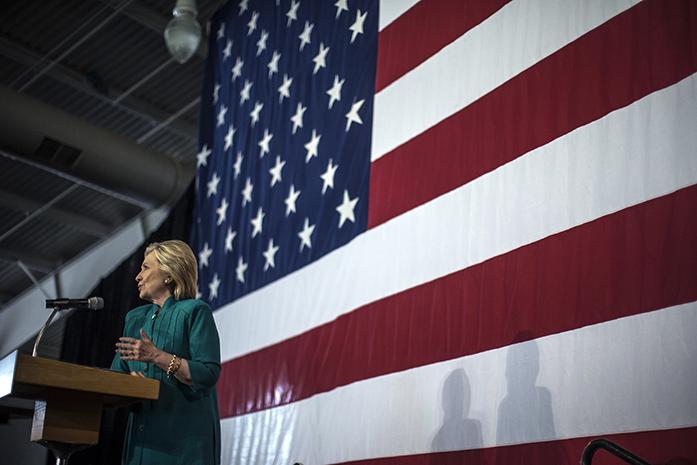The first Democratic debate, in Las Vegas on Tuesday night, among 2016 presidential candidates Hillary Clinton, Sen. Bernie Sanders, Martin O’ Malley, Jim Webb, and Lincoln Chafee presented the opportunity for the candidates to stake their positions on issues ranging from gun control to the legalization of marijuana. Analysis of the debate seems to indicate a nearly unanimous decision that Clinton came out on top, trailed by Sanders, who, while playing to his strengths as a political outsider, missed opportunities to display a more multifaceted appeal. Clinton, on the other hand, managed to come off as a more practical candidate with statements such as, “I am a progressive, but I am a progressive who likes to get things done.”
The debate served as the perfect chance for Clinton to re-establish herself in the minds of voters amid the recent controversy surrounding her use of a private email server while serving as secretary of State. It also demonstrated her presidential image in juxtaposition with the other candidates. Furthermore, the largest boost Clinton received during the debate came from the unlikely source of Sanders, who aided in the clearing the shadow of doubt cast by the email controversy by exclaiming, “The American people are sick and tired of hearing about your damn emails,” which may very well have been counterintuitive for the senator from Vermont.
The issue of double-edge swords was a problem encountered by both candidates; their largest selling points became significant weakness on certain key issues. Clinton’s reliance on her history as a seasoned politician came back to haunt her at moments when shifts in her stance or questionable voting records were called into question. Her hesitance to take definitive stances on such issues as the Keystone XL pipeline coupled with voting in favor of the Iraq War and the Patriot Act offered attack opportunities for the other candidates. Sanders, on the other hand, faced a similar type of weakness in that his image is focused on being straightforward, which leaves little to no room to adjust his stances without it appearing as blatant hypocrisy. The greatest example of this would be Sander’s stance on gun control. After voting against different versions of Brady Bill, which would require waiting periods for purchasing firearms, he was hammered for seeming to contradict his liberal platform.
Clinton and Sanders were the standouts in the debate, but that is not to say that the other candidates did not have their moments. Webb, a Vietnam veteran, presented an alternative view on foreign-policy issues than the rest of the field, who opposed the use of force more or less across the board. O’Malley also had some strong moments, particularly on a question about Black Lives Matter.
However, the debate did little to solidify any real chance of them becoming a legitimate threat to Clinton or Sanders, with some candidates even appearing to dig their own graves in the case of Chafee. When asked about his vote to repeal the Glass-Steagall Act, Chafee decided not to own up to his decision but instead cited his senatorial inexperience at the time of the vote and the degree in which nepotism resulted in his position in the Senate.
Overall, Clinton made a strong showing in the debate and was able to defend against the inconsistencies in her stances over time as well as the controversies that have been plaguing her campaign. Of course, this is only the first debate, but if she is able to maintain the level of poise under scrutiny she exhibited in this debate, she will certainly establish herself as a viable contender in the 2016 election.



